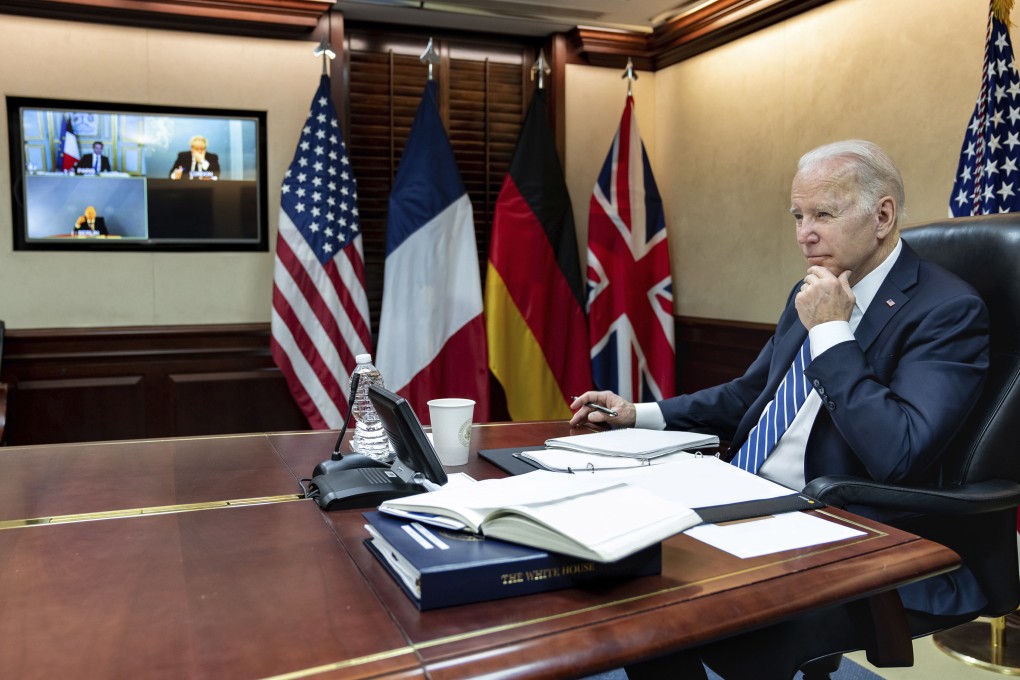US debates trying to gain China’s help in defusing Russia, cooperating on sanctions
- There are two camps, sources say: one that thinks China won’t go along, given its distrust of Washington, and another that says there is little risk in trying
- Beijing will avoid outright defiance of the Western sanctions and export restrictions on Russia but will help Moscow in less detectable ways, analysts predict

A debate is under way within US President Joe Biden’s administration over its policy toward China given the risk that Beijing will help Russia weather the economic and financial sanctions imposed after its invasion of Ukraine, according to sources with ties to the administration.
At issue is whether there is enough daylight between Beijing and Moscow to secure some measure of Chinese cooperation in enforcing sanctions and convincing Russia to de-escalate, they say.
“There’s definitely a big debate. There are two schools of thought. One is that China is not going to play ball on this,” said one source with close ties to US security agencies. “The other is that, maybe they won’t, but you might as well try and that this is a good test on whether you can find any ground on US-China relations.”
Those in the hard-line camp point to efforts over the past 14 months to find areas of cooperation, particularly on global health and climate change, that were rebuffed by Chinese leaders keen to see progress on easing punitive tariffs and other major irritants. This side believes China is dug in, inflexible and that any time spent on changing its mind takes away from addressing inflation, the upcoming US midterm elections and intense alliance-building efforts.
This more hawkish side argues that nascent Beijing-Moscow differences are not enough to overcome China’s deep distrust of the US, driven by a view that Washington is laser focused on preventing its global rise. They also believe Beijing will find it difficult to back away from a 5,300-word statement of “no limits” partnership with Russia jointly issued on February 4.
Those leaning more toward engagement argue that this is an opportunity to put a floor under free-falling US-China relations as China’s stability-obsessed leadership bridles under the collateral damage President Vladimir Putin’s invasion has unleashed.
